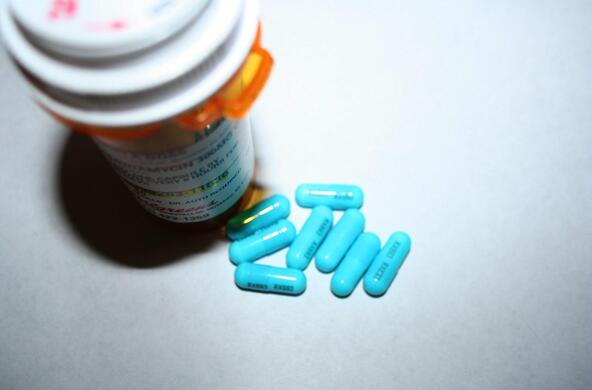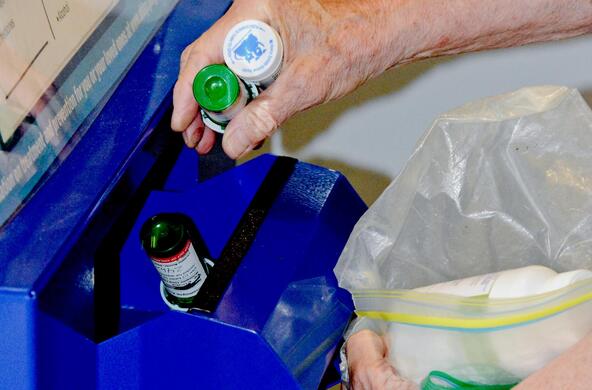Insects that live near streams are being poisoned by a cocktail drugs and medicines including antibiotics and antidepressants, reveals new research.
The dangerous chemicals are passed down the food chain when the contaminated insects are eaten by predators, such as trout and platypus.
Many of the insects examined contained pharmaceutical chemicals at concentrations that may threaten the lives of animals that feed on them.
Study co-author Dr Emma Rosi, an expert at Cary Institute of Ecosystem Studies in the United States, said: 'Stream life is swimming in a mixture of pharmaceuticals.
'Our study is the first to show that this chronic drug pollution can concentrate in aquatic insects and move up food webs, in some cases exposing top predators to therapeutically-relevant doses.'

An international team of researchers sampled six streams in Melbourne, Australia, for 98 pharmaceutical compounds.
They measured for common drugs such as antibiotics, antidepressants, antihistamines, and NSAIDs.
Up to 69 pharmaceutical compounds were found in aquatic insects and 66 in riparian spiders - which build their webs over streams - collected by the team.
Drug concentrations were the highest in insects collected downstream of wastewater treatment facilities, or in heavily populated areas.
On average, pharmaceutical concentrations at these sites were 10 to 100 times higher than less contaminated sites.
Study coauthor Dr Erinn Richmond said: 'Pharmaceuticals were present in every insect and spider we tested.
'Even seemingly pristine sites were contaminated, likely because people live in the park's drainage area and visit the park.'
A platypus living in a creek receiving treated wastewater effluent could receive the equivalent of half of a recommended human dose of antidepressants every day - just by eating its normal diet of stream insects (file photo)
Pharmaceutical pollution is present in surface waters around the world, said the researchers.
Drugs enter our waterways because most wastewater treatment facilities are not equipped to remove them from sewage.
Septic tanks, ageing pipes, and sewer overflows all contribute to the problem.
Scientists say that they can pass drugs to spiders, birds, bats, and other streamside foragers when the insects emerge as flying adults.
In the streams studied, platypus and brown trout also fed on aquatic insects.
By pairing concentrations of pharmaceuticals found in stream insects with known dietary needs of platypus and trout, the team estimated their drug exposure.
Dr Rosi said: 'A platypus living in a creek receiving treated wastewater effluent could receive the equivalent of half of a recommended human dose of antidepressants every day - just by eating its normal diet of stream insects.
'This intake is likely to have biological effects.'
The caddisfly, a globally common aquatic insect, was among those tested in the study.
Dr Richmond said: 'Similar insects are found in freshwaters all over the world.
'This isn't a problem specific to Australia; it's representative of what's likely happening wherever people take drugs.
'And it's likely an underestimate. We only tested for 98 pharmaceutical compounds - there are thousands in circulation.'
The findings were published in the journal Nature Communications.
Citation
Richmond EK, Rosi EJ, Walters DM, Fick J, Hamilton SK, Brodin T, Sundelin A, Grace M. 2018. A diverse suite of pharmaceuticals contaminates stream and riparian food webs. Nature Communications. 9(1)






